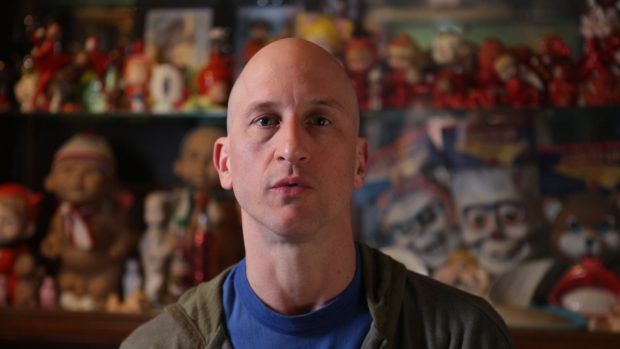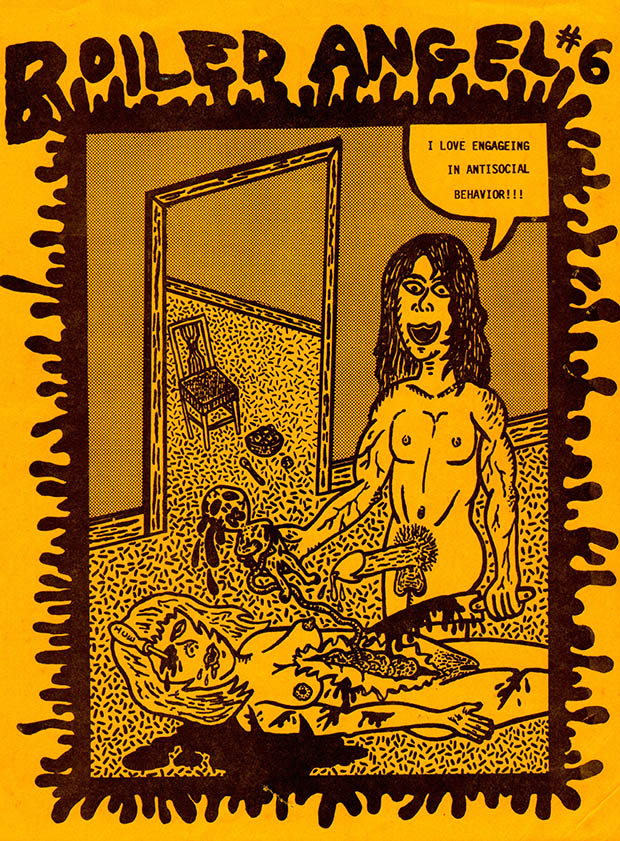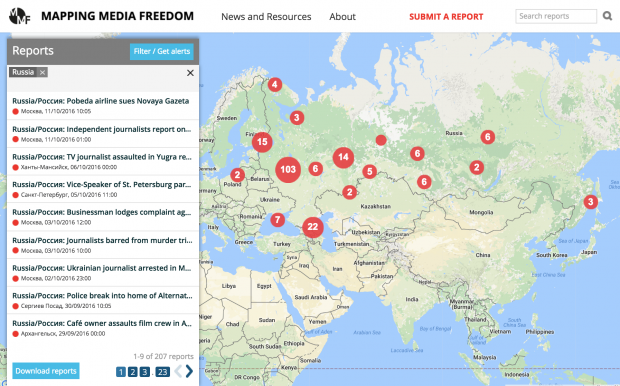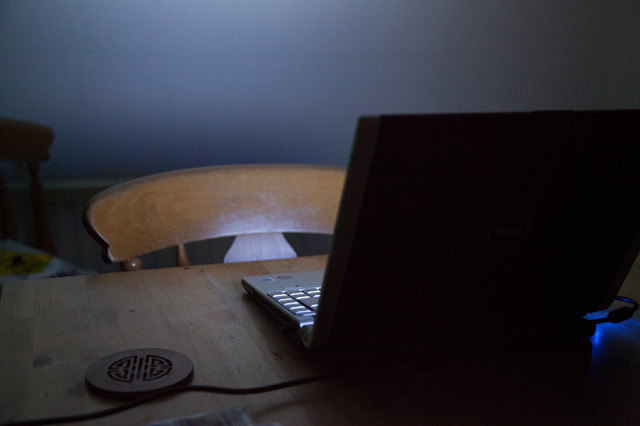24 Oct 2016 | Volume 45.03 Autumn 2016
[vc_row][vc_column][vc_column_text]
This article is from the autumn issue of Index on Censorship magazine, which focuses on anonymity.
I have a name. I am not anonymous. But what if I didn’t have a name? What if I could enjoy the luxury of being safe at home in Bangladesh, and not far away in Germany?
I could have distanced myself from my identity, adopted a pseudonym and continued to write in Bangladesh. Had I done so, my family wouldn’t have to spend each moment in fear and anxiety. My sister wouldn’t have to wake up from nightmares about rape threats. But I am not anonymous. I carry my name and history with me. And so the possibility of an unnatural death haunts me.
Since 2013, my name has surfaced on multiple “hit lists” targeting Bangladeshi bloggers and other activists. I still regularly receive death threats from religious extremists on Facebook and other social media. One simply told me, “It’s your turn now.”
My words often create problems for others. I see myself as writing for the freedom of various groups, for the rights of oppressed communities, for women, for the sexually marginalised. In my debut book Chastity Versus Polygamy, I addressed the patriarchal notion of purity that is assigned to women’s sexuality; this was considered controversial and it enraged many.
I strongly believe that all human beings possess an equal right to express themselves, to assert their ideas and to be recognised for who they are and what they want to be. When the identity of the writer is out in the open, along with a certain level of insecurity comes a burden of responsibility that commits the writer to his or her words. This is why anonymity never appealed to me. I had faith in the democratic setup of my country, Bangladesh. But the state failed to uphold our freedom by suggesting we should stop writing, rather than that terrorism should stop. So I left.
Anonymous bloggers and activists in Bangladesh come from all parts of the ideological spectrum. They include religious radicals, communists, liberals. Unfortunately, certain sections of this anonymous community aim to create chaos, rather than a constructive democratic debate. A number of them publish hate speech, or post videos which are meant to incite violence.
Generally, however, the bloggers are on the receiving end of aggression. Sometimes, even anonymity is no protection. Those who would silence them are often incredibly adept at technological espionage, and can all too easily crack their identities. In March 2015, anonymous atheist blogger Washiqur Rahman Babu was traced and killed in broad daylight outside his residence. Even I didn’t know his identity at the time.
In the face of threats, therefore, going anonymous is hardly a foolproof solution. However, it may not always be feasible to declare one’s identity under dire circumstances, which is the case in many places across the world right now. Anonymity might turn to be one of the necessary shields in the larger, longer battle for free speech.
This article is from the autumn issue of Index on Censorship magazine.
Ananya Azad, a Bangladeshi writer and blogger, is currently in exile in Germany. His father, author Humayun Azad, was the victim of assassination attempts, and later died in mysterious circumstances.
You can order your copy of the latest issue here, or take out a digital subscription via Exact Editions. Copies are also available at the BFI, the Serpentine Gallery, MagCulture, (London), News from Nowhere (Liverpool), Home (Manchester), Calton Books (Glasgow) and on Amazon. Each magazine sale helps Index on Censorship continue its fight for free expression worldwide.
[/vc_column_text][/vc_column][/vc_row][vc_row][vc_column][vc_custom_heading text=”From the Archives”][vc_row_inner][vc_column_inner width=”1/3″][vc_single_image image=”91922″ img_size=”213×289″ alignment=”center” onclick=”custom_link” link=”http://journals.sagepub.com/doi/pdf/10.1177/030642208701600613″][vc_custom_heading text=”Testimony of an ex-censor” font_container=”tag:p|font_size:24|text_align:left” link=”url:http%3A%2F%2Fjournals.sagepub.com%2Fdoi%2Fpdf%2F10.1177%2F030642208701600613|||”][vc_column_text]June 1987
Once a censor in the Syrian Ministry of Information, the anonymous source details the invasion of privacy and censorship the government employs.[/vc_column_text][/vc_column_inner][vc_column_inner width=”1/3″][vc_single_image image=”80637″ img_size=”213×289″ alignment=”center” onclick=”custom_link” link=”http://journals.sagepub.com/doi/pdf/10.1177/0306422015591456″][vc_custom_heading text=”Blogging in Bangladesh” font_container=”tag:p|font_size:24|text_align:left” link=”url:http%3A%2F%2Fjournals.sagepub.com%2Fdoi%2Fpdf%2F10.1177%2F0306422015591456|||”][vc_column_text]June 2015
A series of murders of secular bloggers by religious fundamentalists in has presented clear warnings for bloggers to watch what they say.[/vc_column_text][/vc_column_inner][vc_column_inner width=”1/3″][vc_single_image image=”89164″ img_size=”213×289″ alignment=”center” onclick=”custom_link” link=”http://journals.sagepub.com/doi/pdf/10.1177/0306422010362466″][vc_custom_heading text=”Egyptian gate to freedom” font_container=”tag:p|font_size:24|text_align:left” link=”url:http%3A%2F%2Fjournals.sagepub.com%2Fdoi%2Fpdf%2F10.1177%2F0306422010362466|||”][vc_column_text]March 2010
Mohamed Khaled reports that the Egyptian government continues to harass bloggers, but they’ve become a vital source of information even for the state media. [/vc_column_text][/vc_column_inner][/vc_row_inner][vc_separator][/vc_column][/vc_row][vc_row][vc_column width=”1/3″][vc_custom_heading text=”The unnamed” font_container=”tag:p|font_size:24|text_align:left” link=”url:%20https%3A%2F%2Fwww.indexoncensorship.org%2F2017%2F09%2Ffree-to-air%2F|||”][vc_column_text]The autumn 2016 Index on Censorship magazine explores topics on anonymity through a range of in-depth features, interviews and illustrations from around the world.
With: Valerie Plame Wilson, Ananya Azad, Hilary Mantel[/vc_column_text][/vc_column][vc_column width=”1/3″][vc_single_image image=”80570″ img_size=”medium” alignment=”center” onclick=”custom_link” link=”https://www.indexoncensorship.org/2016/11/the-unnamed/”][/vc_column][vc_column width=”1/3″][vc_custom_heading text=”Subscribe” font_container=”tag:p|font_size:24|text_align:left” link=”url:https%3A%2F%2Fwww.indexoncensorship.org%2Fsubscribe%2F|||”][vc_column_text]In print, online. In your mailbox, on your iPad.
Subscription options from £18 or just £1.49 in the App Store for a digital issue.
Every subscriber helps support Index on Censorship’s projects around the world.
 SUBSCRIBE NOW[/vc_column_text][/vc_column][/vc_row]
SUBSCRIBE NOW[/vc_column_text][/vc_column][/vc_row]
21 Oct 2016 | Americas, mobile, News and features, United States

For the good of society, American cartoonist Mike Diana was jailed without bail in 1994. So ruled a jury at the Pinellas County court in Florida, taking just 90 minutes to find him guilty of obscenity following a week-long trial in March of that year.
Diana was the first – and to date, only – cartoonist to be jailed for his work in the USA.
His ordeal began when one of his Boiled Angel comics – with the stated aim of being “the most offensive zine ever made” – ended up in the hands of a law enforcement officer in California in 1991. The shocking (and often funny) depictions of sex and violence reminded him of a series of then-unsolved murders in Gainesville, Florida. He passed his suspicions on to counterparts in the Sunshine State who took a blood sample from Diana. The cartoonist was found to have had absolutely no links with the crime but prosecutor Stuart Baggish took one look at the comic “and knew right away what [he] was looking at was obscenity”.
Boiled sold only 300 copies by mail and the only issue sold in Dian’s hometown was to an undercover police officer. Although quickly released, Diana was given three years probation, ordered to pat a $3,000 fine, given 1,248 hours community service and ordered to avoid contact with minors.

A new documentary is in the works about Diana and the limitations of the right to free speech in the face of outrage and cries of obscenity. The Trial of Mike Diana, created by cult filmmaker Frank Henenlotter, has launched a Kickstarter campaign to raise funds to finish the film and to cover the costs of a legal review typical of a project which deals heavily with the American court system.
The documentary features many of those who were there during the 1994 trial, including Baggish, as well as interviews with Diana fans and supporters Neil Gaiman, Peter Bagge and Stephen Bissette.
Diana will contribute original animation to the film.
For a medium that lends itself so well to the light-hearted, cartoons have frequently fallen victim to censors. More than two decades on from the sentencing of Diana, they still face prosecution, persecution, death threats and abuse worldwide. Last year’s attack on the offices of Charlie Hebdo was the most high-profile example of just how dangerous the medium can be.
Could history be repeated in the USA? Are the freedoms many Americans take for granted at risk? As Henenlotter puts it: “Freedom of Speech doesn’t mean anything if your art is declared ‘obscene’ and one man’s art could be another man’s obscenity. That’s the battle we explore in this documentary: an improbable collision between comic-book art and the First Amendment.”
More articles about cartoonists:
Targeted cartoonists show support for Charlie Hebdo
Malaysian cartoonist Zunar says “I will keep drawing until the last drop of my ink”
Ecuadorean cartoonist Bonil facing charges after mocking politician
Indian cartoonist arrested on sedition charges
21 Oct 2016 | Europe and Central Asia, Mapping Media Freedom, mobile, News and features, Russia

Russia’s recent elections have been described as “the dullest in recent memory”. But as Index on Censorship’s Mapping Media Freedom (MMF) project shows there was no shortage of media violations and claims of voter fraud.
On 18 September, the day of the vote, journalists across Russia were denied entry, attacked and arrested while attempting to monitor polling stations.
Rosbalt, a Russian news website, reported several instances of journalists – among them reporters for the BBC – being escorted out of a polling station by police officers and employees of the Vasileostrovsky district administration.
Further reports of journalists’ rights being violated in Saint Petersburg were widespread.
In Siberia, reporters were obstructed even from entering polling stations. A number working for Reuters were denied entry after officials at the location said they needed permission from local authorities but there is no law requiring this of international reporters. A voter claimed the counter used by a Reuters reporter to keep track of people voting was actually a radioactive device, and the reporter should be removed. This was not enforced.
Denis Volin, editor-in-chief of local news site Orlovskie Novosti, was barred from entering a polling station in Oryol. Volin was attempting to take photos of the polling station but officials demanded he stop. Journalists in Russia have a right to take photos and observe voting.
A journalist in Samara was illegally barred from a polling station despite having the necessary accreditation. When the journalist tried to stay for the vote count, officials demanded additional accreditation, which does not exist.
Journalist Dmitri Antonenkov and an activist with the Public Monitoring Commission, Vasili Rybakov, were both detained at a polling station in Ekaterinburg while investigating the illegal use of the Russian state coat-of-arms in polling stations. The pair were detained for two hours and their identification confiscated without return.
MMF Russian correspondent, Ekaterina Buchneva, said: “In general, attempts to bar journalists from polling stations were very common. We saw a lot of reports from Saint Petersburg and Moscow but the investigation by Reuters (they sent journalists to 11 polling stations across central and western Russia) proves that it was common for the rest of the country too, but, unfortunately, remained under-reported.”
Another of MMF’s Russian correspondents, Andrey Kalikh, said: “What is common is that journalists monitoring elections are often threatened if they reveal voter fraud at a polling station. There were dozens of cases in the 2011-2012 election campaign (state parliament and presidential elections) where registered journalists were kicked out, beaten up or otherwise harassed.”
Vladimir Romensky, a reporter for the independent TV channel Dozhd, for example, was involved in an altercation at a polling station in Moscow. Romensky was visiting the station to verify information about voter fraud. Earlier in the day a member of the polling board told Romensky that certain ballots were marked for the United Russia party. A man who refused to introduce himself denied access to Romensky and his crew. While Romensky was inquiring, a nearby police officer called armed guards from the station. The guards demanded Romensky’s paperwork and, despite having all his documents, the guards forced Romensky and his crew out of the location.
In another incident, Fontanka news correspondent Dmitry Korotkov was investigating the process of “carouseling”, a form of rigging elections where a group of selected people vote multiple times in different polling stations. When asked whether or not carouseling is a recent trend, Kalikh said, “No, it is not. It has existed before, the most cases were registered in 2011-2012. But the [Korotkov] case… is one of the most outrageous ones.”
Korotkov received information that voters with a special passport stamp were given multiple ballots at a polling station in the Kirov district. Korotkov was able to receive the stamp and received four different ballots at the station, even though he was not registered for the district. The polling official allowed Korotkov to sign as another voter.
Korotkov reported the incident and the polling board promised to investigate. Instead, Korotkov was detained by police officers on charges of illegally receiving ballots. The police interrogated Korotkov and his case was taken to court on 28 September. The journalist could be facing charges of using someone else’s ballot in a general election; his case is still under investigation.
Buchneva said: “The Fontanka reported that after questioning Korotkov and a suspect, who acted as an election official and gave Korotkov ballots named after another person, ‘the judge apparently had no more doubt, that Korotkov signed for another person not to vote illegally, as it was stated in the police report’. However, it is too early to say that the journalist will not be punished.”
Journalist Dmitri Antonenkov and an activist with the Public Monitoring Commission, Vasili Rybakov, were also both detained at a polling station in Ekaterinburg while investigating the illegal use of the Russian state coat-of-arms in polling stations. The pair were detained for two hours and their identification confiscated without return.
Winning 54% of the vote, United Russia now has a majority in the Duma, allowing them to change the country’s constitution without the approval of other parties.
20 Oct 2016 | Campaigns, Campaigns -- Featured, Statements
Index on Censorship believes that everyone has the right to express their opinion, no matter how vile or offensive those views, unless their words directly incite violence. For this reason, we believe that the Independent Press Standards Organisation was right to reject a complaint by Channel 4 News about comments made by Sun newspaper columnist Kelvin MacKenzie regarding Channel 4 journalist Fatima Manji.
MacKenzie’s views are offensive. But they were his opinion and he should be entitled to express his opinion – just as are – thankfully – the vast majority of people who have come out publicly to criticise and dismantle his views in open debate.

![]() SUBSCRIBE NOW[/vc_column_text][/vc_column][/vc_row]
SUBSCRIBE NOW[/vc_column_text][/vc_column][/vc_row]


